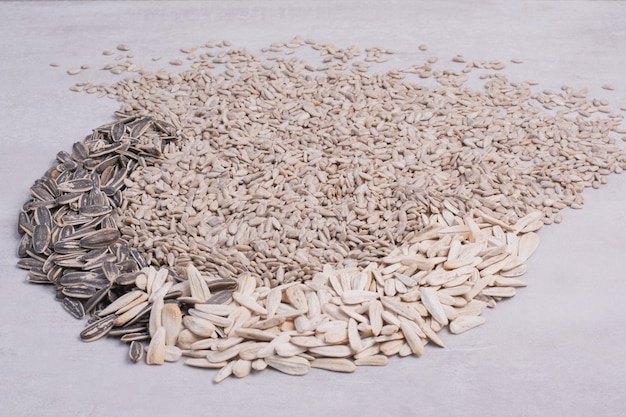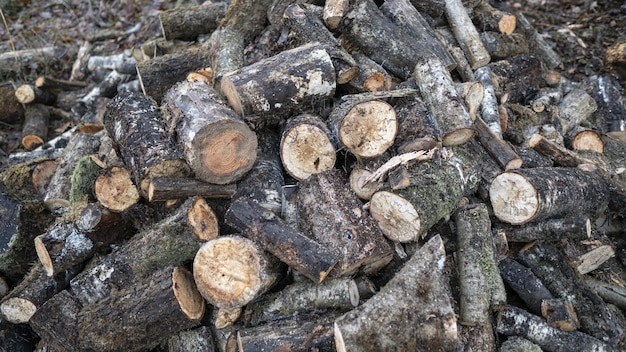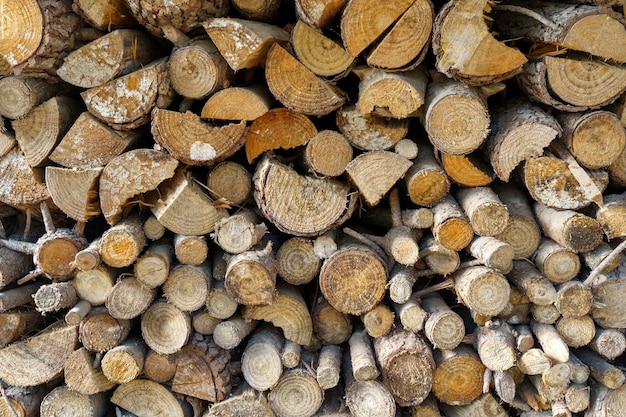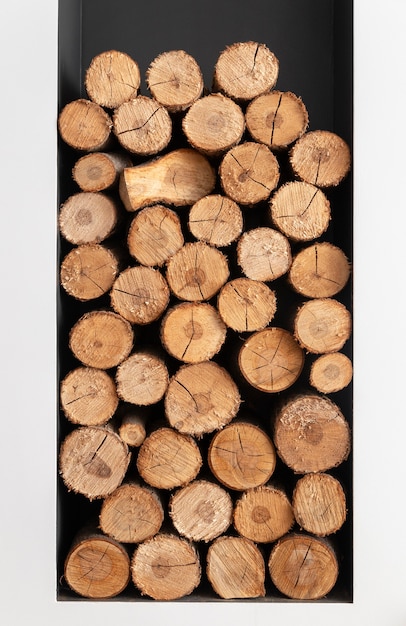Are all BBQ wood pellets the same?
When it comes to barbecuing, using wood pellets as fuel has become increasingly popular. The quality of the wood pellets you use can greatly impact the flavor and cooking experience of your BBQ. However, with so many options available in the market, it’s important to understand whether all BBQ wood pellets are the same or if there are significant differences between them.
The Basics: What are BBQ Wood Pellets?
BBQ wood pellets are small, cylindrical pieces of hardwood that have been compressed to create a concentrated source of fuel for grilling. These pellets are typically made from various hardwoods such as oak, hickory, cherry, or apple. Each type of wood imparts its unique flavor profile, enhancing the taste and aroma of your grilled food.
Quality Matters
While all BBQ wood pellets serve the primary purpose of fueling your grill, the quality of the pellets can vary significantly. Higher quality wood pellets tend to have several advantages over their lower quality counterparts:
- Consistency: Premium wood pellets are manufactured with strict quality control measures, resulting in consistent shape, size, and density. This consistency allows for even heat distribution and reliable cooking performance.
- Purity: High-quality wood pellets are typically made solely from pure hardwood, without any fillers or additives. This ensures a clean burn, free from artificial flavors or chemicals that may taint the taste of your food.
- Moisture Content: Well-made wood pellets have a low moisture content, typically below 6%. Low moisture content guarantees efficient combustion, preventing excess smoke and minimizing ash production.
Understanding Pellet Grading
In the United Kingdom, BBQ wood pellets are classified into various grades based on their quality and composition:
| Grade | Description |
|---|---|
| A | High-quality pellets made from pure hardwood, consistent in size and shape |
| B | Mid-range pellets with some minor variations in size or shape, still suitable for most grilling applications |
| C | Lower grade pellets that may contain fillers or additives, less consistent in size and shape |
Choosing the Right Wood Pellets
When selecting BBQ wood pellets, it’s essential to consider your specific grilling needs and personal preferences. Some factors to consider include:
- Flavor: Different types of wood impart distinct flavors to the food. Experimenting with different flavors can add variety to your BBQ experience.
- Quality: Opt for higher-grade pellets that offer consistent performance and a cleaner burn. These pellets may cost slightly more, but the improved results are worth the investment.
- Certifications: Look out for wood pellets certified by reputable organizations, such as the Forest Stewardship Council (FSC) or the Biomass Suppliers List (BSL). These certifications ensure sustainable sourcing and provide peace of mind.
Remember, using high-quality BBQ wood pellets can enhance your grilling experience by delivering delicious flavors and reliable performance.
The Verdict
No, not all BBQ wood pellets are the same. The quality, composition, and grading of wood pellets can vary, which in turn affects the taste and cooking results. Investing in high-quality pellets can elevate your barbecuing game and make your outdoor cooking sessions more enjoyable.
Are BBQ pellets the same as smoker pellets?
When it comes to preparing mouth-watering barbecued dishes, many people turn to the convenience of using pellets as fuel for their smokers or grills. However, there seems to be confusion surrounding whether BBQ pellets and smoker pellets are the same thing. Let’s dive in and settle the debate.
Understanding the Difference
In essence, BBQ pellets and smoker pellets are indeed very similar and serve the same purpose of producing heat and smoke for your cooking. Both types of pellets are made from compressed hardwood sawdust without any additives or chemicals, ensuring a clean burn and authentic flavor.
However, the primary difference lies in the composition of the pellets. BBQ pellets typically have a blend of different hardwoods, such as oak, hickory, or mesquite, designed to add unique flavors to your food. On the other hand, smoker pellets generally consist of a single type of hardwood, offering a more consistent and milder smoke profile.
Choosing the Right Pellets
When deciding between BBQ pellets and smoker pellets, it ultimately depends on personal preference and the specific flavors you wish to achieve in your dishes. If you enjoy experimenting with bold and distinct flavors, BBQ pellets with various wood blends can provide an exciting culinary experience.
On the contrary, if you prefer a more subtle and versatile taste, smoker pellets that use a single hardwood, like oak or maple, might be more suitable. These pellets work well with a wide range of meats and impart a mild smokiness that doesn’t overpower the natural flavors of the food.
The Perfect Pellet for You
Ultimately, whether you choose BBQ pellets or smoker pellets, both options will enhance the flavors of your barbecued dishes. It all boils down to personal preference and the specific taste you seek.
“The type of pellet you select can significantly impact the final taste of your food, so don’t be afraid to experiment and find the perfect pellet for your grilling adventures.”
Whichever option you decide to go with, it’s important to choose high-quality pellets from reputable brands to ensure consistent performance and optimal flavor. So fire up your grill or smoker and enjoy the smoky delights that BBQ pellets and smoker pellets have to offer!
Do Different Wood Pellets Really Make a Difference?
Wood pellets have become a popular choice for heating in the UK due to their eco-friendly nature and cost-effectiveness. However, many homeowners wonder if using different types of wood pellets can make a difference in terms of performance and efficiency. Let’s explore this topic in depth.
1. Types of Wood Pellets
Wood pellets are typically made from compressed sawdust or shavings. Different types of wood can be used, such as softwood or hardwood. Softwood pellets are more common and tend to burn hotter and faster, while hardwood pellets burn longer but at a lower temperature.
2. Heating Performance
The type of wood pellet you use can affect the heating performance. Softwood pellets may provide a quick burst of heat, ideal for quickly warming up a room. On the other hand, hardwood pellets might be better suited for longer heating periods, providing a consistent and steady source of warmth.
3. Energy Efficiency
Wood pellets are rated based on their energy content, usually measured in British Thermal Units (BTUs) per pound. Different brands may have varying energy content, so it’s worth comparing the labels before making a purchase. Higher energy content means more heat generated for the same amount of pellets consumed.
4. Ash Content and Maintenance
Different wood pellets can also have varying ash content. Lower-quality pellets may leave behind more ash, requiring more frequent cleaning and maintenance of your heating system. It’s important to choose high-quality pellets with lower ash content to minimize maintenance efforts.
Tip: Check the specifications of wood pellets before purchasing them. Look for low ash content and high energy content for better performance and efficiency.
An easy way to compare different wood pellet brands is by referring to their certifications. Look for ENplus or other recognized certifications that ensure the pellets meet certain quality standards. This will help you make an informed decision and ensure you’re using pellets that are suitable for your heating needs.
In conclusion, different wood pellets can indeed make a difference in terms of heating performance, energy efficiency, and maintenance requirements. Consider your specific heating needs and preferences when choosing between softwood and hardwood pellets. Ensure you select high-quality pellets with the right certifications for optimal results. Stay warm and eco-friendly with the right choice of wood pellets!
What Wood Pellets Are Best for Burning?
When it comes to choosing wood pellets for burning, it’s essential to consider the quality and type of wood used. The right choice can ensure better performance, efficiency, and reduced emissions. Here are some factors to consider when selecting the best wood pellets:
1. Wood Type:
The type of wood used in making pellets can significantly impact their burning qualities. Hardwoods, such as oak and beech, are known for their higher energy content and longer burn times. Softwoods, like pine and spruce, ignite quickly and produce a lot of heat but may burn faster. It’s best to choose a blend of hardwood and softwood pellets to strike a balance between energy content and burn duration.
2. Moisture Content:
High moisture content in wood pellets can reduce their energy output while increasing the amount of ash produced. Look for pellets with a moisture content of less than 10% to ensure optimal burning efficiency.
3. Certification:
Look for wood pellets that have been certified by reputable organizations such as the ENplus or the Sustainable Biomass Program (SBP). These certifications ensure that the pellets are produced sustainably and meet quality standards.
4. Ash Content:
Low ash content in wood pellets is desirable as it reduces maintenance and cleaning requirements. Look for pellets with ash content below 0.7% to minimize residue build-up in your stove or boiler.
5. Pellet Length and Diameter:
Wood pellets come in different lengths and diameters. It’s crucial to choose pellets that match your heating equipment’s specifications to ensure proper feed and combustion. Check the manufacturer’s guidelines before making a purchase.
Remember, the quality of wood pellets can vary from one supplier to another. Consider reading customer reviews and seeking recommendations to find a reputable supplier who offers high-quality pellets.
Ultimately, finding the best wood pellets for burning involves considering factors such as wood type, moisture content, certification, ash content, and pellet dimensions. By choosing the right pellets, you can improve the efficiency and performance of your heating system while also reducing environmental impact.
Can you use any wood pellets in a pellet grill?
If you are a proud owner of a pellet grill, you may be wondering if you can use any type of wood pellets in it. While the answer is not a straightforward yes or no, there are certain considerations you need to keep in mind.
Quality matters: The quality of wood pellets is crucial for achieving the best results in your pellet grill. Higher-quality pellets are made from pure wood and have minimal fillers or binders, ensuring a consistent burn and flavor.
Choosing the right type: Different types of wood pellets lend distinct flavors to your food. For example, hickory pellets offer a smoky taste, while applewood pellets impart a subtle fruity flavor. Consider the type of food you are grilling and choose wood pellets that complement its flavors.
Pellet size: Pellet grills are designed to accommodate specific sizes of wood pellets. Make sure to check the manufacturer’s guidelines for the recommended pellet size, as using pellets that are too small or large can affect the performance of your grill.
Beware of additives: Some wood pellets may contain additives or flavorings that can produce undesirable effects on your food. It is important to read the label carefully and opt for pellets without artificial additives or chemicals for a more natural grilling experience.
Quote: “Using high-quality wood pellets ensures a consistent burn and enhances the flavor profile of your grilled dishes.” – Grilling Enthusiast
Ultimately, it is recommended to use wood pellets specifically designed for pellet grills. These pellets are formulated to provide optimal heat, smoke, and flavor, resulting in deliciously grilled meals. Check with your grill manufacturer or local suppliers for the best pellet options for your specific model.
Do all wood pellets burn the same?
Wood pellets are a popular choice for heating homes and businesses in the UK due to their efficiency, cost-effectiveness, and environmentally friendly nature. However, not all wood pellets are created equal, and it is important to understand that different types of pellets can have varying burn characteristics.
Quality and composition
The quality and composition of wood pellets can vary depending on factors such as the type of wood used, the manufacturing process, and the moisture content. High-quality pellets, often referred to as premium or hardwood pellets, are typically made from hardwoods like oak or beech and have a lower moisture content. These pellets tend to burn longer, produce more heat, and create less ash compared to lower quality pellets made from softwoods.
Burn efficiency
The burn efficiency of wood pellets can also differ based on their density and energy content. High-density pellets with low moisture content tend to burn more efficiently, resulting in a higher heat output for the same amount of fuel. This means that you will require fewer high-quality pellets to achieve the same level of warmth and comfort compared to lower quality pellets.
Impurities and ash production
Different wood pellets can have varying levels of impurities, such as bark or sawdust, which can affect their combustion efficiency and overall performance. Lower quality pellets may contain more impurities, leading to increased ash production. High-quality pellets, on the other hand, undergo stringent manufacturing processes that remove impurities, resulting in less ash and a cleaner burn.
It’s important to note that using low-quality or improperly stored wood pellets can result in reduced burn efficiency, increased maintenance requirements, and potential damage to your heating system.
Choosing the right wood pellets
When selecting wood pellets, it is essential to consider your heating needs, appliance requirements, and budget. While high-quality pellets may be more expensive upfront, they can offer better heat output, longer burn time, less maintenance, and reduced ash production. Look for pellets that have certifications such as ENplus or Woodsure to ensure their quality and compliance with industry standards.
In conclusion, not all wood pellets burn the same. The quality, composition, burn efficiency, and impurities can vary, impacting their heat output, burn time, and maintenance requirements. Investing in high-quality pellets will likely result in a more efficient and satisfying heating experience, while also minimizing the potential for issues with your heating system.



